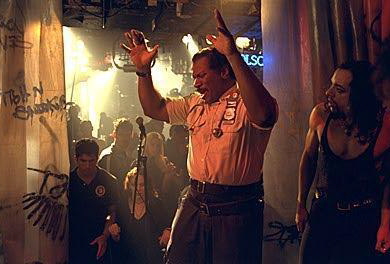Asking the question supplies the answer. "Do no (further) harm".
They will not allow laypersons to legally get and administer enough narcan to help in many cases. (So, often futile).
Some places already and illicitly slip narcan to their addicted clients, but one news article I head said they don't know if it is doing any good. (Suggests it is futile).
If you are convinced what you are going to do pharmaceutically (no matter how thin the chance of it working and no matter how thin your absolute knowledge of the drug) ought to be done because "I gotta do SOMETHING!" (to do nothing is distressing to you), then you are one foot in the Malpractice Hole and sliding towards killing or harming someone.
There are three questions here:
1. Is it ethical and safe (forget legal for the moment) to do this?
2. Is it realistic to expect it to help, based in scientific evidence and experience? Or will we see gross misdosaging, calls for 911 delayed because "We gave him the narcan, dude!", and incorporation of narcan into abuse patterns rather than as curative (such as medical O2 getting highjacked for hangovers enabling alcohol abuse).
3. Historically "antidotes" and "harmless drugs" (look up the history of the medicinal uses of thalidomide, radium salts, and strychnine) aren't. Should people without depth in background in assessment, care and pharmacodynamics be given antidote drugs to administer on the basis that a "panacea dose" (not tailored to pt weight and dose of poison) will save lives? IS there a "panacea dose", or do we just blast everyone with a high (pun untintended) dose? And remember, this is medicine being held and given by junkies, maybe often by people under the influence at the time.



